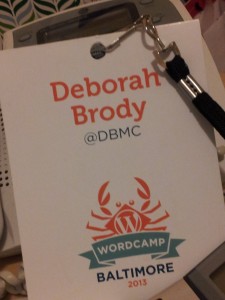Why your blog isn’t being read and what to do about it
Unless you are publishing something like the Huffington Post, chances are that you have a small audience for your blog. You will publish lots of blog posts that do not get comments or are not shared on social media. This isn’t because you are a bad writer or you don’t have something valuable to say, it is, quite simply, because people don’t have time to read your blog.
I have been blogging for years, and I have been following more than a hundred blogs for years too. In the past few weeks, I have been blogging less and reading less. Why? Because I am working on a project that has me working outside my home office for five days a week for about twelve to fifteen weeks, plus I am commuting more than two hours each day. I am no longer able to be on Twitter all day, nor can I read my Feedly very often. Even though this is novel for me, it is the reality for a great many people. There are only so many hours in a day, and something has got to give. For me, and I suspect for many people, it’s keeping up with blogs.
As a blogger, what can you do about it? Here are six actions you can take to avoid being forgotten:
1. Keep blogging. An outdated blog is surely never going to be read, and it will not help your goals or your SEO.
2. Remember your blog goals, stick to your topic and keep giving readers good stuff. Too many blogs go off topic too often or don’t share valuable information. That causes readers to lose interest and be less inclined to stick with it.
3. Ensure your readers can subscribe to your blog in many ways. It may be easier for people to read your blog if they can get an email when you publish a blog post. Some people like RSS readers. In any case, you must give them options.
4. Highlight your best posts in your newsletter (you do have a newsletter?). Whether your newsletter is weekly, monthly or quarterly, you can use it to point people back to your blog by telling them about all the great content you have there. The idea is to get your audience to remember you have a blog, and to appreciate that you share relevant information there.
5. Spend more time on your headlines. A great headline almost guarantees people will read the post (or at least, scan it).
6. Share, and share again. (And encourage sharing by having sharing capabilities and acknowledging people who share stuff). Make sure that you share your blog post with all your networks. People are at different places at different times–make it easy for them to see your post.
What would you add to this list? What makes you read a blog post even if you don’t have the time?
About Deborah Brody
Deborah Brody writes and edits anything related to marketing communications. Most blog posts are written under the influence of caffeine.






